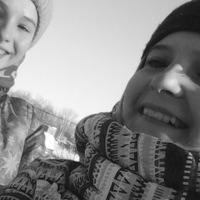
Вопрос задан 28.10.2023 в 13:36.
Предмет Английский язык.
Спрашивает Каральчук Владислав.
If you _____ (brush / not) your teeth after meals, you _____ (have) cavities.
 0
0
 0
0
Ответы на вопрос
 Внимание! Ответы на вопросы дают живые люди. Они могут содержать ошибочную информацию, заблуждения, а также ответы могут быть сгенерированы нейросетями. Будьте внимательны. Если вы уверены, что ответ неверный, нажмите кнопку "Пожаловаться" под ответом.
Внимание! Ответы на вопросы дают живые люди. Они могут содержать ошибочную информацию, заблуждения, а также ответы могут быть сгенерированы нейросетями. Будьте внимательны. Если вы уверены, что ответ неверный, нажмите кнопку "Пожаловаться" под ответом.

Отвечает Коток Виталина.
If you’re not brash your teeth after meals, you will have cavities.
 0
0
 0
0

Отвечает нейросеть ChatGpt. Будьте внимательны, ответы нейросети могут содержать ошибочные или выдуманные данные.
If you *do not* (brush / not) your teeth after meals, you *will have* cavities.
In this sentence, we are discussing a conditional statement related to oral hygiene. The first part of the sentence, "If you do not brush your teeth after meals," sets up the condition. The second part, "you will have cavities," represents the consequence of not following the condition.
Here's a breakdown:
1. "If you do not brush your teeth after meals" - This is a conditional clause, indicating what will happen if you do not perform a specific action (in this case, brushing your teeth after meals).
2. "you will have cavities" - This is the result or consequence that follows if you do not brush your teeth. It suggests that not brushing your teeth will lead to the development of cavities.
So, in summary, the sentence is emphasizing the importance of brushing your teeth after meals to prevent cavities.
 0
0
 0
0
 0
0
 0
0
Похожие вопросы
Топ вопросов за вчера в категории Английский язык
Последние заданные вопросы в категории Английский язык
Предметы
-
Математика
-
Литература
-
Алгебра
-
Русский язык
-
Геометрия
-
Английский язык
-
Химия
-
Физика
-
Биология
-
Другие предметы
-
История
-
Обществознание
-
Окружающий мир
-
География
-
Українська мова
-
Информатика
-
Українська література
-
Қазақ тiлi
-
Экономика
-
Музыка
-
Право
-
Беларуская мова
-
Французский язык
-
Немецкий язык
-
МХК
-
ОБЖ
-
Психология
-
Физкультура и спорт
-
Астрономия
-
Кыргыз тили
-
Оʻzbek tili

























